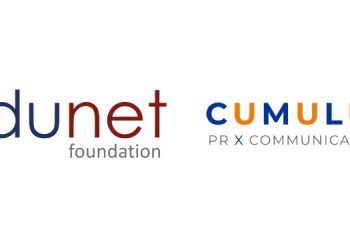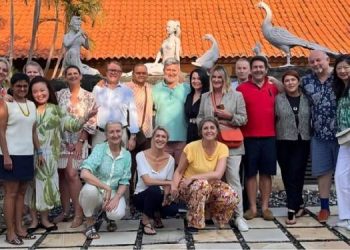Mumbai: Following massive participation from Symbiosis Institute of Business Management, Pune, in the Art For Freedom Challenge, the institute steps forward to play an active part in the fight against rape! In a dedicated virtual knowledge session led by experts from forensics, legal and law enforcement – The scientific value of DNA forensic evidence in sexual offence and rape cases, and the importance of DNA in court proceedings, as most conclusive evidence in such cases, was discussed.
The core focus of discussion was on, ‘what to save’ and ‘how to save’ evidence in a rape case where the family, friends and persons in close proximity to the survivor have a key role in preventing the destruction of the bodily substance found at the scene of a crime or on the survivor’s body. Sharing standard operating protocols for use of DNA evidence, Dr. Vivek Sahajpal, Assistant Director, Himachal Pradesh FSL, said, “DNA forensics offers the gold standard in forensic evidence whenever establishment of identity from biological evidence is required. DNA evidence plays a pivotal role is in the case of scientific examination of sexual assault cases and not only brings the perpetrators to justice but also exonerates the innocent. However like any other biological evidence the DNA evidence also degrades with time and hence correct identification, collection and preservation of DNA evidence is vital. Still further the masses also need to be made aware of this evidence so that they understand the value of preserving the DNA evidence and timely reporting of such crimes.”
Further, contributing with a legal perspective in the matter, and explaining the growing value of DNA evidence in court proceedings and expediting justice, Senior Advocate Vivek Sood (Supreme Court of India), cited examples of success and failure. He added, “DNA evidence fills the gaps that existed in the traditional system of leading evidence in sexual assault cases which heavily depended on the testimony of the victim. Oral evidence of the victim, though crucial, has its shortcomings such as loss of memory due to lapse of time, getting insignificant contradictions on record through incisive and aggressive cross-examination and highlighting them to create doubts in the mind of the court to secure an acquittal. DNA evidence is scientific and easy to collect and prove. DNA evidence is an effective weapon to identify culprits of sexual assault and secure convictions. It’s perfect evidence to corroborate the oral testimonies. DNA also helps those falsely implicated to prove their innocence.”

Advocating greater demand for DNA testing and citizen participation, Arneeta Vasudeva, National Head PR & Influence, Ogilvy India, elaborated on the need for such orientation, “It is extremely important to educate the youth on their role in saving the evidence and how it potentially helps in expediting justice. Making them better aware of the context of DNA and what accounts for crucial evidence in such cases of heinous crimes is sure to aid first-line responders in fast racking investigation. This would amount to quicker justice delivery. And with that, we are certain to put the fear of the law in the minds of the perpetrator”.
With experts providing deep insight into the subject, the session was followed by an engaging panel discussion on the role of citizens in combating rape. Joined by Isha Pant, DCP Command Centre, Bengaluru who has long been involved in initiatives for the safety of women & children, learnings from her experience with ‘Be Together Bangalore’ campaign and ‘Safe City Project’ to make public spaces safer for women, was discussed with the students of SIBM, “In this modern age of technology, it becomes imperative that we make use of available resources to provide justice and punish the actual offender. DNA evidence, being scientific and objective in nature, offers that credibility. We must ensure that this knowledge regarding the importance of DNA based evidence reaches every nook and corner of the country”
Kamal Manwani, Counselling Therapist shared few recommendations during the panel discussion, highlighting the importance of better counselling aids and mentoring not only for survivors of rape but educating people at large, given the current mindset of our society. She said, “The way our society deals with rape survivors must change. We must put the accountability on the offenders and the society at large and stop victim shaming and blaming. Here it is also essential that not only the victims of rape but also the first responders and youth are equiped with the right kind of mindset and scientific know-how for the use of DNA evidence. Then only can this carve the path for a much-needed transformation in our society.”
Crimes against women in India have been steadily rising over the years. According to the latest NCRB report, 2019 saw over 4 lakh reported cases of crimes committed against women, up from 3.78 lakh in 2018 and 3.59 lakh cases in 2017. NCRB reported 32,033 rape cases which translate to a shocking 88 rape cases a day – and this is just 10% of all crimes against women.
In some parts of the world, it is said that people awareness of DNA forensic evidence and its application in crime investigation is far more advanced. As a result, when a crime like rape occurs, the reporting incidence goes up and the investigation process follows through much quicker. This ensures faster justice delivery and reducing case backlogs. Tim Schellberg, Founder & President, Gordon Thomas Honeywell—GA shares his point of view, “The level of public awareness about DNA forensics in a country is directly linked to the quality of criminal investigations and efficiency of its justice system. For example, few realise that in a rape case, the survivor’s family & friends can play a critical role in improving the chances of catching and convicting the offender by helping protect DNA evidence from the crime scene. The reason behind a higher success rate in rape cases in the West is not so much about better technology and has more to do with the public understanding of how DNA works and its value in building a strong case. This has created a culture of timely reporting of sexual crime, not disturbing or cleaning off bodily evidence, and ensuring that the victim’s medical examination is conducted at the earliest. India too can see a great deal of success in its fight against rape with similar public consciousness and the country’s youth are best placed to lead this change.”
Over the last couple of years, increasing awareness of forensic DNA technology in India has led to the doubling of the number of DNA tests conducted in criminal cases from 10,000 cases in 2017 to nearly 20,000 in 2019. However, despite growth in the number of profiles being tested, the absolute volume remains low due to poor conviction and the long road to justice, especially in crimes against women and children.

















